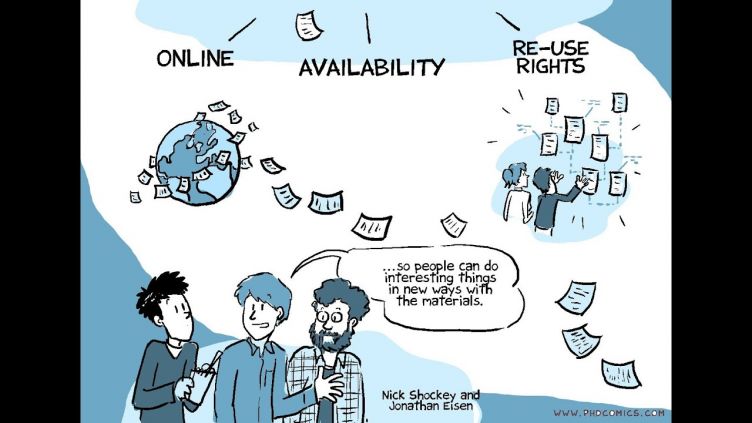What is open access?
Open access refers to research publications that are freely available online and openly licensed. It benefits researchers and the wider community, and increases the visibility and impact of research.
Introduction to open access
Open access to research publications falls under the wider umbrella of open research, the practice of making the processes and outputs of research transparent and freely accessible, wherever possible.
Open access research publications, including journal articles, monographs, chapters, theses and conference proceedings, are available online:
- without having to pay for access
- with a licence that allows users to copy and redistribute the work, and preferably also to remix, transform and build upon it (eg. one of the Creative Commons licences)
Research publications which are free to read online but without a reuse licence are sometimes referred to as ‘bronze’ open access.
Benefits of open access
For the researcher: Open access to your work can increase visibility, readership, citation rates and lead to new academic collaborations. In many cases, it allows you to retain copyright, and to reuse, adapt and translate material from your own publications. Open access is also required by the REF and many funders such as UKRI and the Wellcome Trust.
For the research community: Other researchers can access and build upon your findings, including those who are unaffiliated to an institution, or in institutions unable to afford journal subscriptions.
For the wider community: People around the world can read your work, and benefit from innovations that may develop from it. Practitioners, workers in industry and the third sector, policy makers and the interested public may all benefit from open access to research publications.
Routes to open access
You can either publish under an open licence in a journal or platform (gold open access), or publish behind a paywall and make an earlier version of your publication available via a repository (green open access).
Gold open access allows the publication to be made freely available immediately on publication. It often, but not always, incurs a fee known as an Article or Book Processing Charge. When journals and book publishers fund open access publication without charging a fee, this is known as ‘diamond’ open access.
Green open access is free of charge, but the publisher may not allow the publication to be made available until a period of time (an embargo) after first publication.
In order to understand routes to open access, it’s important to be able to differentiate between the different versions of a research publication
- The version of the publication on the publisher’s website is known as the Version of Record.
- The version of the publication after changes have been made following peer review, and before copyediting and typesetting has been carried out by the publisher, is known as the Author Accepted Manuscript. This is the version most commonly used for green open access.
- The version of the publication before peer review is known as the preprint. You can choose to share this version if the publisher allows it. Find out more about preprints.
Whether you are publishing a journal article, set of conference proceedings, an academic book, or a chapter, your choice of open access routes will depend on whether the journal or book publisher is fully open access or hybrid, the funding options available to you, and any funder, institutional and publisher open access policies.
Full guidance for University of Sheffield staff and PGRs is available at How do I make my journal articles open access? and How do I make my books and chapters open access?

Experience Sheffield for yourself
The best way to find out what studying at Sheffield is like is to visit us. You'll get a feel for the atmosphere, the people, the campus and the city.

